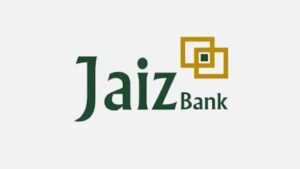LCCI expresses concerns over increasing inflation rate
…Urges implementation of cost reduction strategies
The Lagos Chamber of Commerce and Industry (LCCI) has expressed concerns over the rising inflation rate in Nigeria and the impact it will have on businesses.
In a statement released on Monday, the LCCI highlighted the need for businesses to implement cost reduction strategies to lower operating expenses and maintain profitability amidst inflationary pressures.
According to the National Bureau of Statistics (NBS), the inflation rate in August rose to 25.80 per cent, a 1.72 per cent increase from the previous month.
Director-General of the LCCI, Dr Chinyere Almona stated that businesses would need to adopt various strategies to navigate the challenging economic landscape.
One of the strategies mentioned by Almona is downsizing, which involves reducing the size of the workforce to cut costs.
This measure, although necessary for some businesses, can have a significant impact on employees and their households.
With real income expected to decline, households will face further financial strain in the near term. Another strategy suggested by the LCCI is local sourcing of input factors.
By sourcing materials and resources locally, businesses can reduce their dependence on imported goods, which have become more expensive due to inflation. This approach not only helps to lower costs but also supports local industries and promotes economic growth.
However, the LCCI expressed concern about the increase in both the food and core components of the Consumer Price Index (CPI), which contributed to the rise in inflation.
The chamber emphasised the need for the government to implement prudent fiscal policy measures to address the inflationary pressures. While the month-on-month pace of headline inflation has been slow, the LCCI believes that the path of price movements remains uncertain in the near term.
This uncertainty poses challenges for businesses as they try to plan and make informed decisions.
In conclusion, the LCCI “anticipates a challenging business environment in Lagos due to the rising inflation rates.”
The LCCI also “calls on the government to implement prudent fiscal policies to address the inflationary pressures. As businesses navigate these challenges, the path of price movements remains uncertain, requiring careful planning and decision-making.”
She added that households’ real income would continue to experience decline, especially in the near term.
Almona said that the LCCI is concerned about the uptick in inflation (year-on-year) driven by increase in both the food and core components of the CPI.
She said that the slow pace of headline inflation month-on-month may be an indication that the path of price movements remains unclear in the near term.
The Lagos Chamber of Commerce and Industry urged the FG to implement prudent fiscal policy measures.
The LCCI in its statement said it is anticipating that businesses will implement a variety of cost reduction strategies to lower operating expenses and maintain profitability amidst inflationary pressures, including downsizing and local sourcing of input factors to remain afloat.
Dr Almona also noted that households’ real income would continue to experience a decline, especially in the near term, citing the business lobby group is concerned about the uptick in inflation (year-on-year) driven by the increase in both the food and core components of the CPI and also the indication that the path of price movements remains unclear in the near term, she added:
“The Lagos Chamber of Commerce and Industry recommends government implement prudent fiscal policy measures.
“This is particularly in terms of borrowings as well as addressing the challenge of food inflation by immediately reducing and removing tax on basic food items to protect the most vulnerable.
The LCCI also called for palliatives to cushion the effect of the rising inflation on consumers, and also a pause in interest rate hikes.
“We implore the government to hasten the provision of the anticipated palliatives to lessen the impact of the rising trend in prices on economic agents.
“Furthermore, we urge the Central Bank of Nigeria (CBN) to pause interest rate hikes to relieve the pressures on the supply side, especially at this time.”
Recall that inflation surged to 25.80 per cent in the month of August 2023, 1.72 per cent points higher than the 24.08 per cent recorded in the previous month.
In terms of contribution to the year-on-year inflation, Food and non-alcoholic beverages (13.36 per cent) contributed the most, followed by housing water, electricity, gas and other fuel (4.32 per cent), and clothing and footwear (1.97 per cent).
On a year-on-year basis, in August 2023, the Urban inflation rate was 27.69 per cent, this was 6.73 per cent points higher compared to the 20.95 per cent recorded in August 2022.
The Rural inflation rate stood at 24.10 per cent, representing a 3.98 per cent points increase compared to the 20.12 per cent recorded in August 2022.
Meanwhile, two months ago, The Monetary Policy Committee (MPC) of the Central Bank of Nigeria (CBN) increased the benchmark interest rate (MPR) by 25 basis points to 18.75 per cent from its initial 18.5 per cent, representing the highest interest rate in 22 years.




